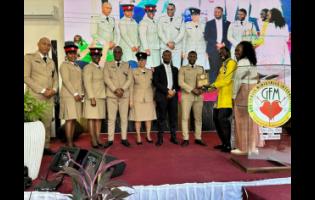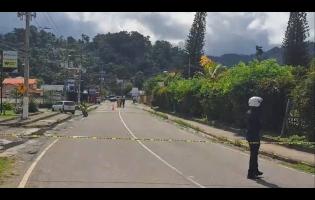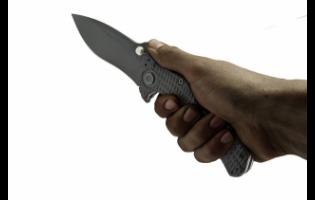Disabled community determined to vote - More access for physically challenged
"When you vote, you elect who you want to represent you, it doesn't have anything to do with whether you're a disabled person or not."
This is the belief of Winston Barr, a disabled man living in Maroon Town, St James. Despite not having any hands, Barr still makes it his duty to participate in the electoral process.
To him, participating in elections is important as he believes it is his right to vote, regardless of his disability.
Barr lost both hands in 1979, after being electrocuted. Although he is not yet sure if he is going to vote on September 3, he most recently voted in the 2011 general elections.
Under the provisions of the Representation of the People Act, and the Fundamental Rights Act (2012), persons with disabilities are eligible to vote but should be provided assistance.
Barr has benefited from this provision in the law. "When I go to vote, somebody marks the X for me," he said.
Executive director at the Combined Disabilities Association, Gloria Goffe, points out that sometimes disabled persons are posed with a challenge when they go to vote.
"Some people have challenges having someone vote for them, because they have to trust somebody to do the right thing for them. The physical access is a challenge too, where some of the polling stations, despite the efforts, pose a challenge. The issue is that someone may not be able to come up and down the stairs," she said.
Even more challenging
She explained that sometimes disabilities are not immediately recognised and that makes it even more challenging. "Those persons with visual impairment, that they don't necessarily walk with a cane, and persons who are deaf, they are treated sometimes like they are pretending just to receive the preferential treatment, when in truth, they really need the assistance. Some people have difficulty because of the type of disability to get from one place to another," she said.
Goffe, who is blind, points out that while there are challenges involved in the electoral process, she has seen improvements made for members of the disabled community. "The Combined Disabilities Association has had meetings with the Electoral Commission in the past;we haven't spoken with the current president. But we have seen all that he has mentioned, all the protocols how to treat persons with disabilities at the polling stations," she said.
She believes that more could be done to facilitate members of the disabled community to help improve their access to voting.
"I think one of the dreams of the association is for a system to be set up to allow for blind persons to vote independently, for all polling stations to be on the ground floor and to have wide enough doors and having full access ramps," Goffe said.








































